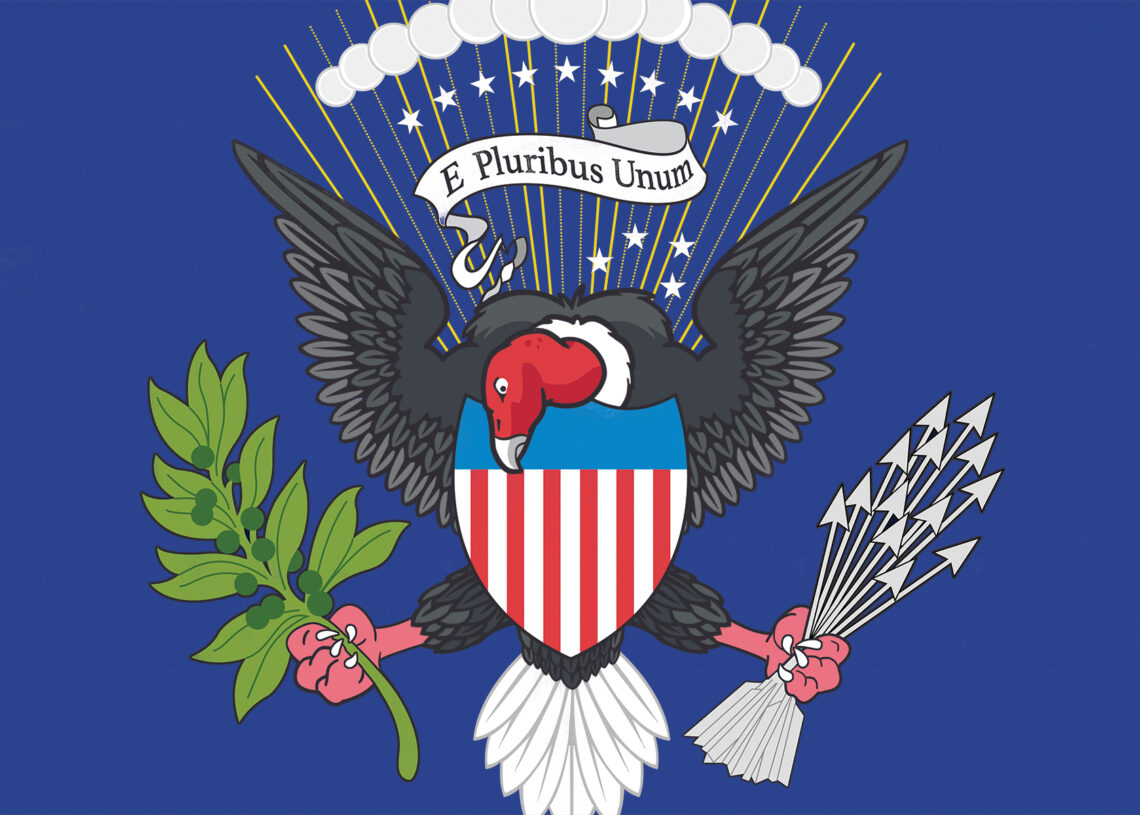
Zachary Karabell writes “The Edgy Optimist” on Substack and is the author of more than a dozen books, including “Chester Alan Arthur,” a biography in the American Presidents series.
One of the least debatable aspects of the Donald Trump presidency is that he and his family have been personally profiting from the office. Estimates of the amount they have earned vary, but it is probably in the hundreds of millions to low billions of dollars.
Zachary Karabell writes “The Edgy Optimist” on Substack and is the author of more than a dozen books, including “Chester Alan Arthur,” a biography in the American Presidents series.
One of the least debatable aspects of the Donald Trump presidency is that he and his family have been personally profiting from the office. Estimates of the amount they have earned vary, but it is probably in the hundreds of millions to low billions of dollars.
The bulk of the money appears to have come from various cryptocurrency enterprises launched mostly by his sons Eric and Donald Jr., but ample millions have also come from the hundreds of products — bibles, guitars, perfume and more — for sale at the Trump Store and other outlets.
Add to that the transfer of a jumbo jet from the Qatari government and allegations of pardons being granted in exchange for money.
This long list has led to widespread charges that the graft and corruption represent a threat to our democracy. But do they really amount to that?
While the scale of the Trump administration’s profiting and self-dealing is a sharp break from the past century, it is not a sharp break from American history.
The Gilded Age is Exhibit A of a time when graft was the rule and not the exception. As the recent Netflix series “Death by Lightning” reminds us, the 1870s and ’80s were a time when the idea of politicians’ personally and directly profiting from their positions was so unremarkable as to be banal.
The most significant scandal of the day revolved around the Star Routes, private postal service contracts awarded by the Post Office. A group including a prominent senator and the assistant postmaster general, along with multiple other officials, inflated the value of the contracts and then skimmed off the profits to the tune of tens of millions of today’s dollars.
But what’s truly scandalous about these 19th-century decades is what was legal. So intense was the culture of corruption — epitomized by the Democratic political machine of New York City known as Tammany Hall — that one famous politico, New York state senator George Washington Plunkitt, drew a distinction between “honest graft and dishonest graft.”
Honest graft meant getting rich from the access and connections and patronage that politics provided; dishonest graft was blackmail. Honest graft was knowing in advance that the government planned to ask for bids on a project and then lining up your own company to get the contracts. Dishonest graft was blackmail, extortion and shaking down opponents for money.
Chester A. Arthur, who was James Garfield’s vice president and became president when Garfield died in September 1881, was an exemplar of honest graft. In the 1870s, Arthur was the Collector of the Port of New York, in charge of collecting all taxes on foreign trade in and out of the city. At that time, duties collected at the port constituted nearly half the federal government’s revenue. As collector, Arthur was informally entitled to a “moiety” — a hefty percentage of the duties collected. That made him the highest-paid government official in the country. It would be as if current Treasury Secretary Scott Bessent personally pocketed a portion of all tariff duties.
And then there was patronage. In what was known as the “spoils” system (as in, to the victor go the spoils), most of the jobs in federal and state government were patronage appointments, which rolled over whenever a new party won an election. Garfield’s assassin, Charles Guiteau, was described as a disgruntled office seeker — a non-recipient of a patronage job, though in truth Guiteau suffered more from deep mental instability than lack of federal employment.
In the 1880s, doling out jobs to supporters was the primary perk of high office. Imagine Trump or Joe Biden awarding federal jobs (not to mention contracts) to their millions of volunteers and campaign workers, and imagine that those workers routinely kicked back a portion of their salary to the individuals directly responsible for nominating them for jobs, and you get some idea of the scale of the systemic graft.
All this fell under the rubric of “honest graft.” The dishonest kind — government officials taking direct cash bribes or extorting money — was also widespread. But nothing compared in scope and scale with what was nominally legal.
By the 1880s, even many who had benefited from the post-Civil War system had second thoughts about the sheer scale of profiteering from government. The first move to check the system came from men like Arthur himself. As president, he signed the Pendleton Act into law in 1883, establishing civil service exams as the path to government jobs. It would be decades before the system fully shifted away from patronage, but the 1880s represented the high-water mark of legalized corruption.
And yet, for all the Sturm and Drang of those decades, you didn’t hear constant fervid warnings in the press and elsewhere that democracy was in peril. There were certainly passionate voices advocating reform. In criticizing the spoils system in 1876, Mark Twain famously remarked, “We will not hire a blacksmith who never lifted a sledge … but when you come to our civil service, we serenely fill great numbers of our minor public offices with ignoramuses.”
Henry Adams, the commentator par excellence of his day (if he lived in the 2020s, he almost certainly would host a wildly successful podcast), spoke of the “rotten institutions” that lay at the heart of American politics.
The condemnations of the system were passionate and explicit, but no one seemed overly concerned that the fate of democracy and freedom and indeed the rise or fall of the United States hinged on the issue.
This should at least put the heated refrains that the self-dealing of Trumplandia is an existential threat to democracy into some sort of perspective. It may be distasteful, possibly even illegal. But there is a wide chasm between illegal, immoral or corrupt and the end of freedom, civil society and democracy as we know it. There is a massive gulf between the thought-control of Pyongyang and TrumpCoin.
These distinctions are more than an issue of rhetoric. To date, our system has been quite able to withstand a flood of corruption and graft. Is that optimal, rather than having government officials motivated by public service instead of personal gain? Of course not. But suboptimal isn’t the same as an existential threat.
In short, we need to get a grip. Let’s recognize the sordid parts of our history as a guide to dealing with a sordid present. Let’s tone down the talk of Armageddon and wrestle with the problems at hand as what they are — part of our messy democracy, and not some fatal aberration from an idealized, mythical past.
The post Trump’s profiteering hardly portends the end of democracy
appeared first on Washington Post.




